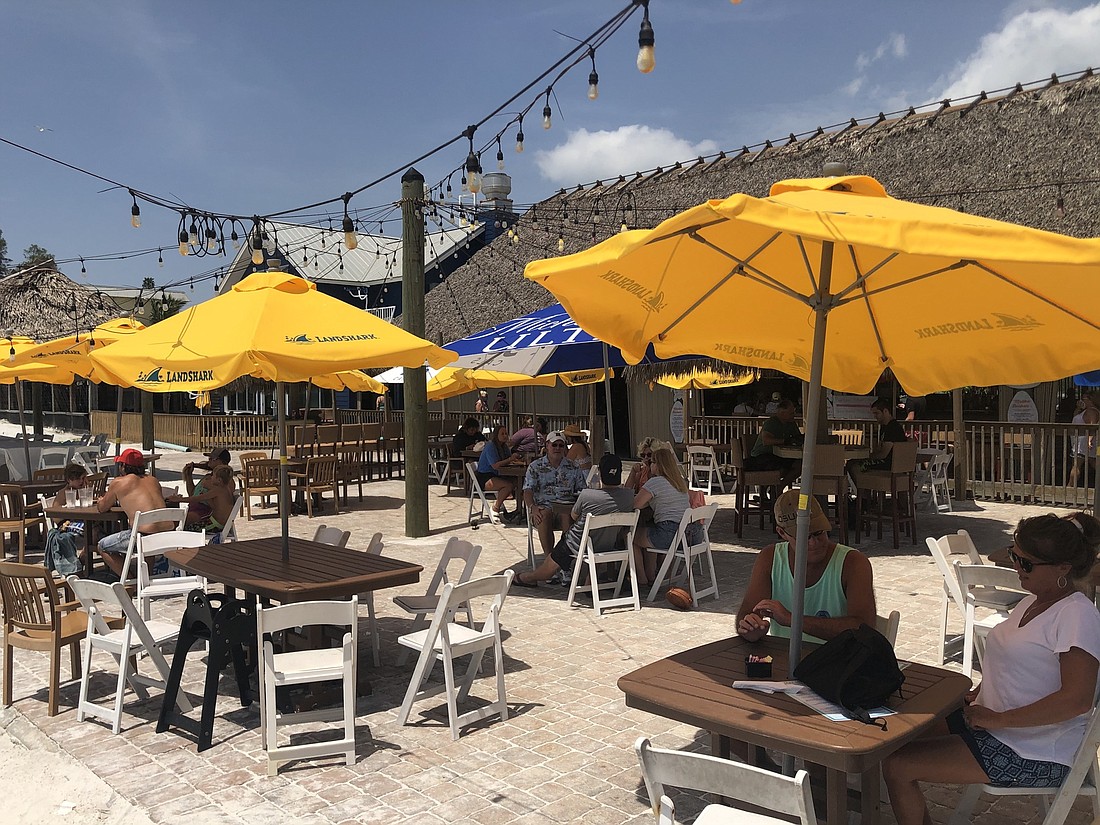- December 15, 2025
-
-
Loading

Loading

Tampa Bay retailers and restaurants remain cautiously optimistic about their collective recovery from the effects of the COVID-19 pandemic for the most part, even as the health crisis enters its sixth month and infections surge statewide.
At the same time, demand for new retail and dining locations hasn’t diminished, says a retail specialist with commercial real estate brokerage firm Colliers International Tampa Bay.
“Things don’t appear in regards to new investment to have changed all that dramatically because of the recent rise in (COVID-19) cases,” says Tyler Peterson, an executive managing director at commercial real estate brokerage firm Colliers International Tampa Bay, who specializes in the retail sector.
“The clients we’re speaking to are still very bullish on the Tampa area’s ability to come out of the crisis in good shape and they’re actively seeking new locations,” he adds.
Peterson says that retailers, restaurant operators and investors are choosing to focus on Tampa Bay’s economic momentum prior to the pandemic, the region’s strong tourist traffic and relatively low retail vacancies.
“Merchants’ aggressive nature toward Tampa Bay investment has not changed,” he says.
He also cites what he believes will be pent-up consumer demand to return to restaurants and brick-and-mortar stores.
“Our sense is that people want to feel safe, but they’re also anxious to try new things and explore as they did several months ago before the pandemic hit,” Peterson says.
To heighten the perception of customer safety, Tampa Bay retailers and restaurants are instituting a number of changes, including installing better ventilation systems, drive-through and pick-up areas, outdoor seating and “touchless” doors and payment systems.
Many retailers, too, have successfully shifted their emphasis to omni-channel platforms to boost online sales and crafted marketing campaigns around discounted gift cards and other loyalty measures.
Even so, many retailers and eateries – especially among traditional enclosed mall tenants – have suffered amid the pandemic. Since February, more than a dozen prominent retailers, including luxury goods purveyor Neiman Marcus, GNC, Brooks Bros., Sur La Table, J.C. Penney, J. Crew, Pier One Imports and Bed, Bath & Beyond, have sought bankruptcy protection from creditors. Most are expected to restructure debt and continue operating.
The parent companies of restaurants Sweet Tomatoes, Chuck E. Cheese and Pizza Hut and Wendy’s largest franchisor, NPC International, and California Pizza Kitchen also have sought bankruptcy stemming from flagging sales.
In all, full-service restaurant chains’ sales fell 27% year-over-year for the week ended July 19, according to the NPD Group, a Port Washington, N.Y.-based market research firm. In June, full-service chains’ “on-premises traffic” plunged 62%, though some of those lost sales were made up through carry-out and delivery orders, NPD says.
David Portalatin, an NPD food industry advisor, says it remains too early to say whether the drop in sales represents a full-scale “re-set” of consumers’ dining habits.
At the same time, McDonald’s Corp., Dunkin Donuts, Victoria Secret and others have unveiled plans to shutter hundreds of locations nationwide.
Collectively, the bankruptcies and announcements are expected to result in more than 5,000 U.S. store closures – even as Florida unemployment has remained above the 11% national average, federal unemployment payments of $600 weekly for consumers are set to expire and paycheck protection payments to employers have stopped.
“We may see a shakeup in retail, but I don’t think we’ll experience the bloodbath many have predicted,” Peterson says. “So far, the bankruptcies that have occurred have not surprised anyone.
“Obviously, things are changing week to week, but in the Tampa Bay area, vacancy rates are still around 6.4% for operations of 10,000 square feet or more, and they’re pretty stabilized at that level,” he adds.
He attributes that stabilization to entrenched consumer sentiments, retailers with strong balance sheet and access to capital, merchant innovation and the fundamental economic strength of the Tampa Bay region.
“Shopping has held strong throughout the pandemic, despite the fact that some of that shopping has shifted to online platforms,” Peterson says, without citing specific figures. “People are still looking for deals, and retail as a sector is resilient.
“And the restaurant industry has remained surprisingly strong, even as the mode of dining in the region has shifted,” he adds. “I think that’s because people, especially in Florida and especially this time of year, like getting out there, experiencing new things and eating out.”